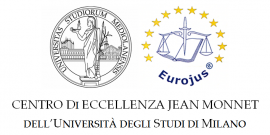Considerazioni sull’effettività della tutela giurisdizionale dei privati avanti alla Corte di giustizia
L’articolo si prefigge di analizzare il tema classico e spinoso dell’effettività della tutela giurisdizionale davanti alla Corte di giustizia. La pretesa completezza e coerenza del sistema di tutela tratteggiato dalla Corte in Les Verts (1986) sembra mostrare oggi le sue aporie e contraddizioni, stante fra l’altro il carattere ibrido, amministrativo e costituzionale ad un tempo, del meccanismo rimediale di cui all’art. 263 TFUE. Quanto al rimedio indiretto di cui all’art. 267 TFUE per ovviare ai limiti imposti dagli artt. 263-265 TFUE a tutela dei privati, esso poggia troppo sulla buona volontà dei giudici nazionali, per i quali Cilfit e Foto-Frost non hanno ancora sortito del tutto l’effetto di far comprendere l’importanza del rinvio pregiudiziale. Sotto altro profilo, non può essere enfatizzato oltre misura il rimedio alla Köbler, stante la sua natura di extrema ratio, di carattere succedaneo per giunta, subordinato anch’esso a presupposti e condizioni particolarmente rigorosi e formalistici. Tutto ciò deve aggiungersi alla prassi non commendevole da parte dei giudici di Lussemburgo di neutralizzare il principio di oralità negando spesso ai privati l’udienza di discussione con ogni naturale conseguenza sulla qualità delle pronunce.
Per leggere l’intero articolo, clicca qui
The article aims at analyzing the classic and thorny issue of the effectiveness of judicial protection before the Court of Justice. The purported completeness and consistency of the system of protection depicted by the Court in Les Verts (1986) seems to show today its contradictions, given, among other things, the hybrid character, administrative and constitutional at the same time, of the remedy provided for under Article 263 TFEU. As for the indirect remedy under Article 267 TFEU as an argument to overcome the limits imposed by Articles 263-265 TFEU for the protection of individuals, there is the tendency on the part of the Court to rely too much on the good will of national courts, for which Cilfit and Foto-Frosthave not yet succeded in making them understand the importance of the preliminary ruling mechanism. On the other hand, the remedy provided for by the Köbler case cannot be overemphasized, being sort of a last resort remedy, functioning as a substitute and which is also subject to particularly strict and rigorous conditions. Additionally one has to point out the existence of a Luxembourg courts practice, not very appreciable indeed, which has the tendency to disregard the overall requirements of a fair hearing by often denying private individuals the right to be heard in a public hearing with all natural consequences in terms of the case-law quality standards.
To read the full article, click here


